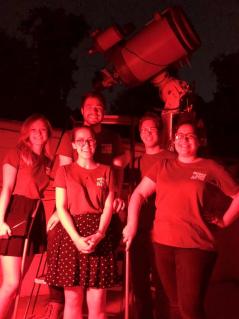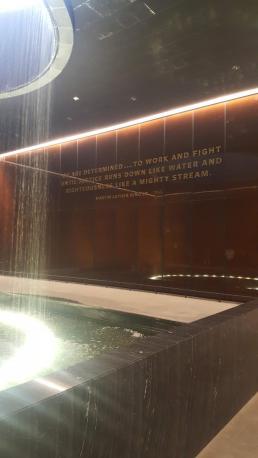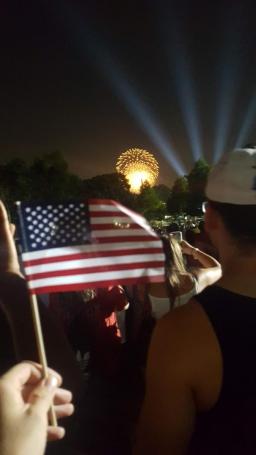Friday, July 6, 2018
By:

I met the creators of a puzzle game called Zendo on Monday, and actually got the chance to play the game with them for an hour. The rules are simple: players compete to figure out a secret rule set by a moderator by taking turns building new structures of game pieces--each new structure gives insight about the unknown attributes of the secret rule. Not only was the game genuinely entertaining, it was also a decent model of the scientific method: the more structures built, even if they did not follow the rule, the more information we had to form a hypothesis. I think that is a perfect analogy for the this past week.
I've mentioned before that life in Washington, DC is peculiar--particularly the passion of the people here makes life peculiar--and I chose the word 'peculiar' purposefully. Although peculiar can mean odd or unusual, it can also mean that a characteristic belongs exclusively to a particular person or place. People come here to influence the world, and that influence comes in many forms: signing legislation, starting a business, holding a filibuster, marching in the streets, researching STEM, tagging a street sign, hiring lobbyists, promoting a program, committing violence; players attempting to discover the 'secret rule' of progress. It's particularly in DC where you find this constant battle for influence.
Myself and three other interns attended the Families Belong Together march on Saturday, which began as a rally near the White House. We heard testimony after testimony of people pleading for the abolishment of the Immigration and Customs Enforcement Agency (ICE), including testimonies from Lin Manuel Miranda, Alicia Keys and America Ferrera. The words were somber, but the message was powerful. Despite the exhausting heat, we marched from the White House to the Department of Justice. I chose to wear my new MAA shirt (as a way of representing that STEM was marching with us too) and a man came up to me and thanked me for representing his organization (coincidentally he was a retired MAA executive!).

As if the weekend hadn't been heartwrenching enough, a handful of us visited the African American History Museum on Sunday. The layout of the musuem is different from the other Smithosonians we've visited in that there is a set path of exhibits that align chronologically. The path begins on the bottom-most level, in a very quiet, dimly lit corridor with images depicting the evolution of slavery and the horrors associated with slave life. As we moved through the timeline it was enlightening to see what historical figures and events influenced African American history (Harriet Tubman, Frederick Douglas, Abraham Lincoln, MLK) and to see the dynamic shift approaching the sixties. Soon you're immersed in music and color ("R-E-S-P-E-C-T find out what it means to me"), walls lined with civil rights movement posters, flags, album covers and TVs showcasing black activist news coverage, hip hop music videos, and aerial footage of the 2008 inauguration. The museum emphasized the sacrifices made to arrive at the multi-cultural environment we live in today, but also stressed that racial/cultural equality remains an ongoing battle.

To finish out the week, we made our way onto the steps of the Capitol building to watch the Capitol 4th concert and the annual Fourth of July Fireworks on the Mall. It was nearly intolerably hot and humid, but there's no feeling like being in the hub of America as the nation celebrates what makes it proud to be American.
Now we've reached the thought-prodding portion of our program: What makes you proud to be American? What would you like to be different? Challenge: Leave Donald Trump out of the conversation ;)
Michael Welter
